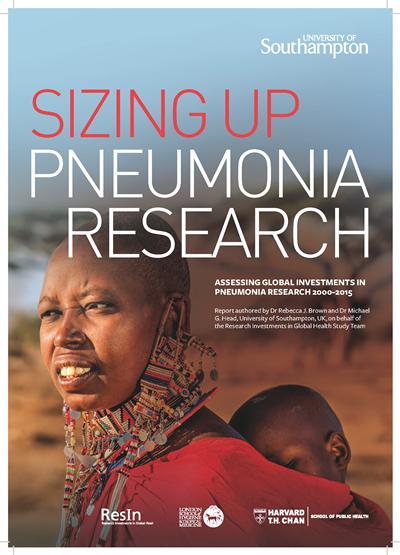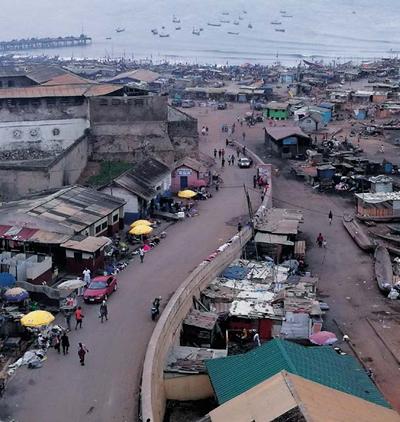Lack of funding into pneumonia research despite 1 million deaths a year

A new report published by NAMRIP members Dr Michael Head and Dr Becky Brown provides new insights into global research funding for pneumonia. The report, ‘Sizing up pneumonia research’ summarises 2000 awards and research funding of $3 billion into pneumonia related research by the G20 countries, awarded between 2000 and 2015. Analysis includes investment in priority areas such as paediatric, antimicrobial resistance and vaccine-focused research.
The team also measured levels of investment against the burden of disease (to understand the relative strength of spend on particular diseases). This shows that pneumonia research is grossly underfunded, particularly compared to some other infectious diseases which have stronger research infrastructures such as malaria and tuberculosis.
The burden is particularly high for children from low and middle income countries, accounting for most of the 1 million deaths a year from pneumonia (double the number of deaths per year from malaria). Countries most affected are India, Pakistan, Nigeria, Ethiopia and Demographic Republic of Congo.
Pneumonia does not benefit from a high public profile. Michael and Becky want to help change that perception by quantifying the problem and associated spending. The report aims to provide evidence to policy makers to help inform their decisions about future spending.
Michael and Becky launched their report at the Commonwealth Heads of Government meeting in London on 19 April. The meeting was organised by UNICEF and Save the Children and was attended by a variety of stakeholders including Ministers of Health and senior colleagues in charity, advocacy, public and private sector roles. They also had numerous conversations with global health colleagues in Geneva at the World Health Assembly.
View and download the full report.
The pneumonia report is part of a larger dataset being produced by Michael and Becky, which will include all infectious diseases and associated research funding from G20 countries. The work is funded by the Bill & Melinda Gates Foundation.
The final dataset will include between 70,000 and 80,000 different awards, around $100 billlion research funding, awarded between 2000 and 2015. Each award is categorised under a number of different disease areas, eg pneumonia and AMR. It will also include a large dataset on AMR relevant research funding which will likely be published towards the end of 2018.
Included in the dataset are categories that define studies as pre-clinical, biomedical, clinical trials and public health implementation type research (so the research pipeline and type of science funded can be analysed). The findings will be publicly available with the aim on informing thinking of policy makers, funders and reseachers, and informing strategies in terms of what should be funded next.
Ghana Case Study
In August 2017 Michael was awarded a Global Partnership award from the University of Southampton to look at the problems and priotities of pneumonia reseach in Ghana (Ghana also being the venue for our first Global-NAMRIP conference).

Michael explained his meeting with the respiratory doctor at the Korle Bu Hospital in Accra “The children come to the hospital with possible pneumonia. The paediatric dept may be full so they are placed elsewhere. They are given whatever antibiotic is available which may not be effective due to resistance or the child may have a viral pneumonia. By the time the respiratory doctor sees the child they are seriously ill and often dying”.
Another issue is recognition within the community that the child’s fever could be due to pneumonia. Michael said “A child is often given malaria tablets as healthcare workers, often volunteers with limited training, believe every fever is due to malaria, and anti-malarial drugs are widely available.”
Michael’s findings, backed up by attendees at the recent Commonwealth meeting, show there is a huge opportunity for rapid diagnostics enabling accurate diagnosis and early treatment, and also behaviourial social science interventions that can improve early recognition of the infection.
Michael is returning to Ghana in August this year to chair a 2 day workshop looking at priorities in infectious diseases. He will also start a pilot of epidemiology of pneumonia cases at the Korle Bu Hospital and aims to involve 2 students from the University of Ghana in collecting the data. The plan being to apply what is learned in Ghana to other local settings. The Ghanian Minister of Health praised Michael’s article on Pneumonia in Ghana as “very well researched” and has asked to meet Michael in August.